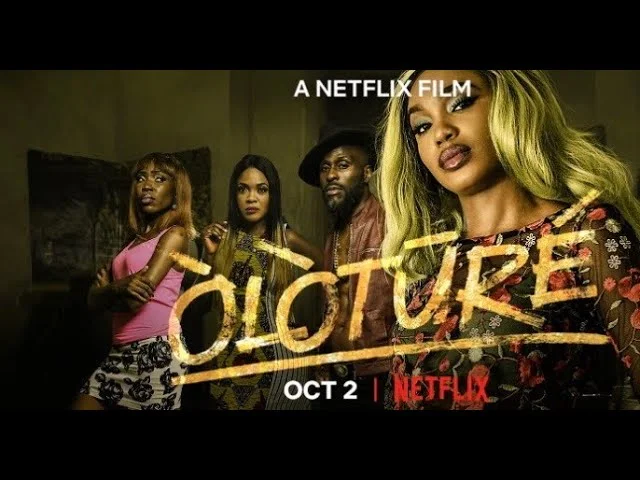Released on Netflix on October 2, 2020, Òlòtūré shines a stark light on Nigeria’s sex-trafficking trade through the story of a journalist, played by Sharon Ooja, who poses as a prostitute to uncover its brutal realities.
The film draws from the 2013 undercover work of Tobore Ovuorie, a 39-year-old reporter for Nigeria’s Premium Times. “I needed to know the truth, the backstory of these women,” Ovuorie told AFP, describing her eight-month infiltration of Lagos’ trafficking networks.
Her 2014 report, co-published with ZAM Chronicles, exposed coercion, violence, and organ trafficking, earning her the Wole Soyinka Award for Investigative Reporting.
A Grim Depiction of Trafficking
Set in Lagos, Òlòtūré follows the journalist, named Òlòtūré, as she navigates a world of ruthless traffickers, pimps, and corrupt politicians.
The film portrays women lured by false promises of European jobs, only to face abuse in a Lagos training camp, divided into “street” or “special” prostitutes for wealthier clients.
Ovuorie noted that many victims, often from Edo State, Nigeria’s hub for irregular migration, willingly enter sex work to escape poverty, believing Europe offers a “next level” opportunity. In Italy, 10,000 to 30,000 Nigerians work as prostitutes, with thousands more trapped in Libya, per Italian authorities.
Linda’s Story Resonates
The film’s most compelling character, Linda, a young, uneducated woman from a rural background, befriends Òlòtūré. “Linda represents many young women who fall into disillusion,” Ovuorie said, reflecting on a similar figure from her investigation.
Director Kenneth Gyang aimed to highlight these vulnerable women, telling France 24, “We must make this film available in remote areas to warn those at risk of trafficking.” The film’s bleak ending, leaving Òlòtūré’s fate uncertain, sparked heated social media debates, with Gyang defending its realism: “For most of these women, there’s no light at the end of the tunnel.”
Production and Impact
Produced by Mo Abudu’s EbonyLife Films, Òlòtūré marks Netflix’s first multi-title partnership with the Nigerian studio. Abudu, inspired by global trafficking reports and Ovuorie’s article, told CNN the film’s shocking $181 billion annual trafficking revenue drove her to act.
Directed by Gyang, the film features Nollywood stars like Omoni Oboli and Blossom Chukwujekwu, earning praise in Nigeria, Africa’s largest film market. Gyang, moved by stories of Nigerians exploited abroad, including a BBC documentary on a girl trafficked to Agadez, Niger, aimed to expose systemic issues rooted in colonialism and poverty, per Indiewire.
A Call for Awareness
Ovuorie, still haunted by her experiences, continues searching for the women she met, hoping to tell their stories.
The film, widely watched in Nigeria, aligns with African cinema’s tradition of tackling post-colonial struggles, akin to Ousmane Sembène’s Black Girl (1966).
Human Rights Watch’s 2019 report confirms the film’s depiction of abuse, noting starvation, rape, and extortion faced by trafficked Nigerian women.
Òlòtūré’s unflinching narrative urges action against a trade that exploits thousands annually, particularly from Edo State, where 91% of trafficking victims are women, per the International Organization for Migration.






